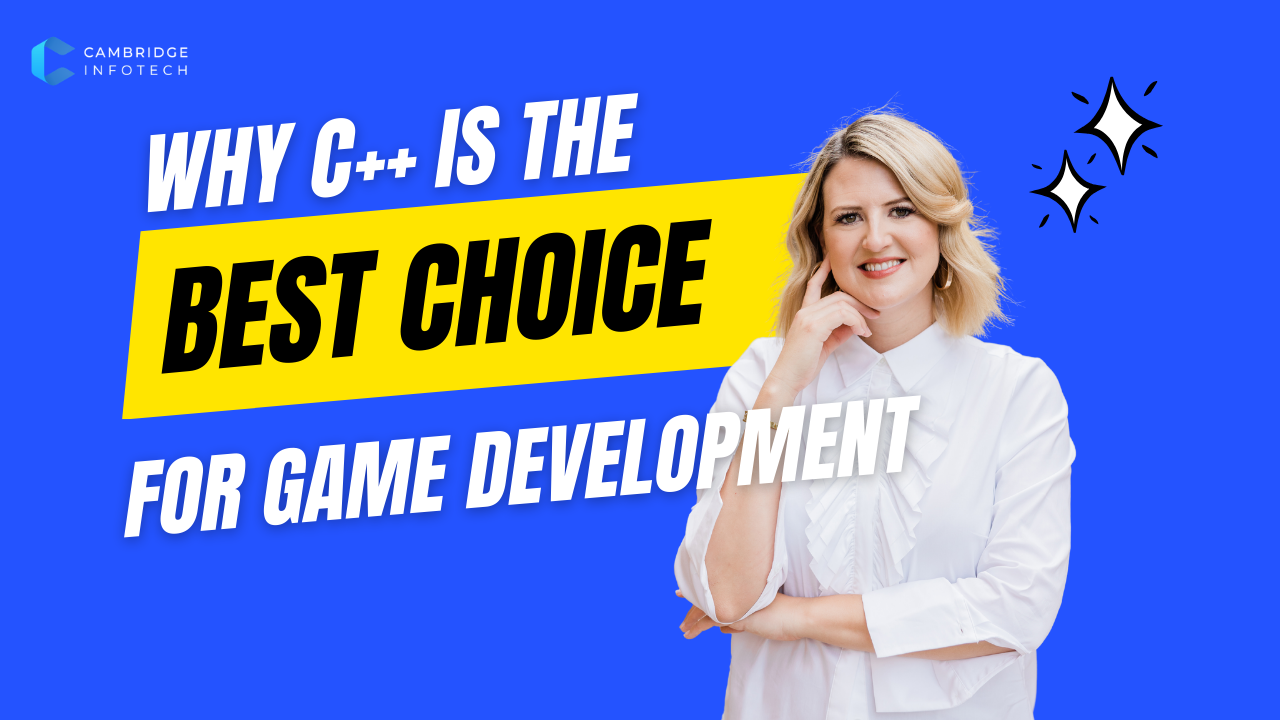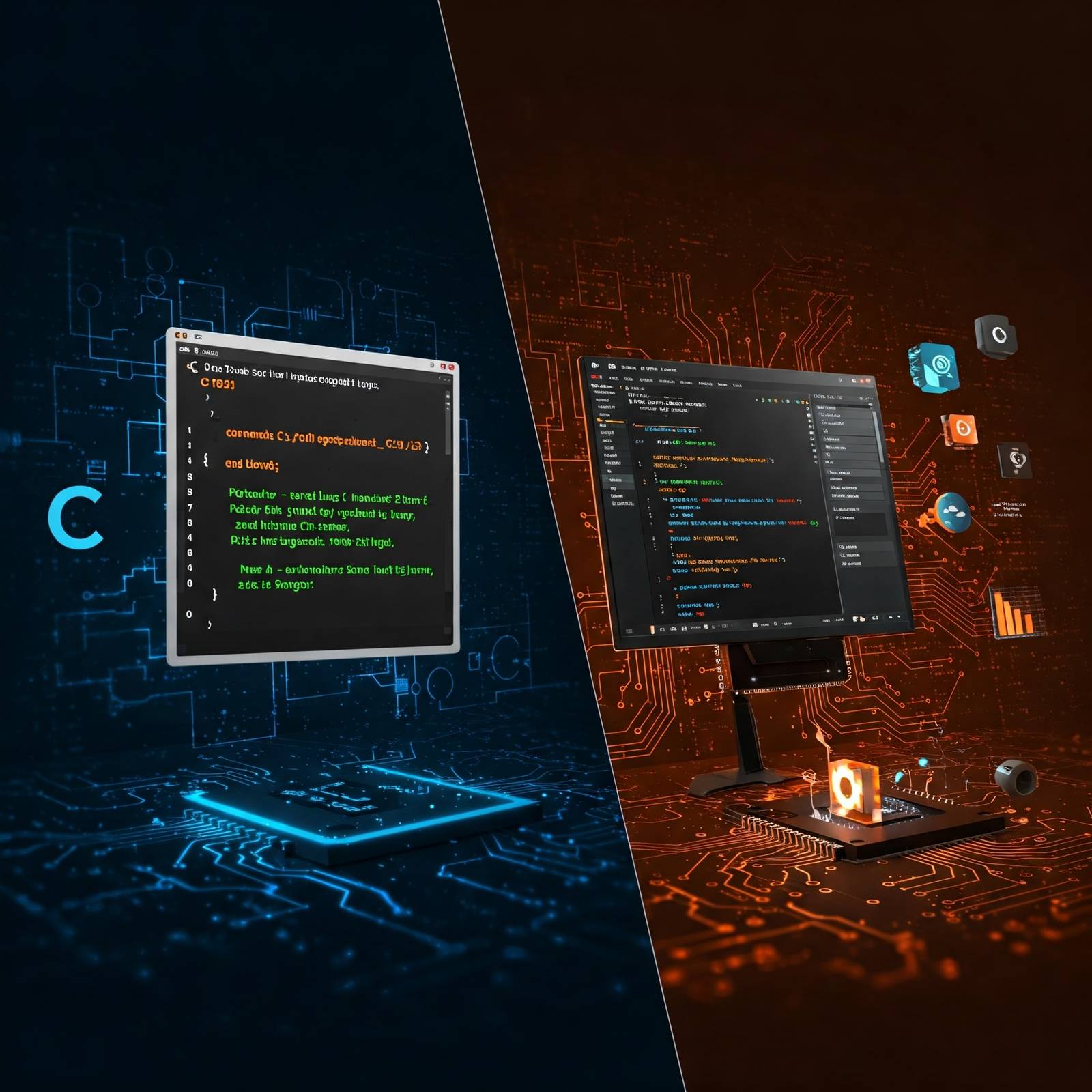Currently Empty: ₹0.00

C vs C++ A Comprehensive Guide to Choosing the Right Language for Your Programming Journey
When it comes to programming languages, C and C++ are two of the most influential and widely used languages in the tech world. Both have shaped the foundation of modern software development, but they serve different purposes and cater to different needs. If you’re a beginner or an experienced programmer trying to decide between C vs C++, this blog will help you understand their differences, similarities, and use cases. By the end, you’ll know which language is the right fit for your learning or project goals.
Introduction to C and C++
What is C?
C is a procedural programming language developed in the early 1970s by Dennis Ritchie. It is often referred to as the “mother of all programming languages” because of its influence on modern languages like C++, Java, and Python. C is known for its simplicity, efficiency, and close-to-hardware functionality, making it ideal for system programming, embedded systems, and operating systems. Learn more about the history of C from GeeksforGeeks.
What is C++?
C++ is an object-oriented programming (OOP) language created by Bjarne Stroustrup in the 1980s as an extension of C. It builds upon the features of C while introducing concepts like classes, objects, inheritance, and polymorphism. C++ is widely used for game development, GUI applications, and performance-intensive software. For a deeper dive into C++, check out this C++ tutorial by W3Schools.
Key Differences Between C and C++
| Feature | C | C++ |
|---|---|---|
| Paradigm | Procedural | Object-Oriented (supports procedural too) |
| Approach | Focuses on functions and procedures | Focuses on objects and data abstraction |
| Complexity | Simpler and more straightforward | More complex due to OOP features |
| Memory Management | Manual (using malloc and free) | Manual (with additional features like RAII) |
| Standard Library | Limited | Extensive (STL – Standard Template Library) |
| Use Cases | System programming, embedded systems | Game development, GUI apps, large systems |
When to Use C vs C++
Use C if:
You are working on system-level programming or developing operating systems.
You need direct hardware access for embedded systems or device drivers.
You prefer a simpler, more lightweight language without the overhead of OOP.
You are a beginner and want to understand the fundamentals of programming.
Use C++ if:
You are developing large-scale applications that require modularity and reusability.
You need high performance with the added benefits of OOP.
You are working on game development or real-time simulations.
You want to leverage the Standard Template Library (STL) for efficient data structures and algorithms. Learn more about the STL from cppreference.com.
Advantages of C and C++
Advantages of C
Efficiency: C is fast and lightweight, making it ideal for low-level programming.
Portability: C code can run on almost any platform with minimal changes.
Simplicity: Its syntax is straightforward, making it easier to learn and debug.
Advantages of C++:
OOP Features: Encapsulation, inheritance, and polymorphism make code more organized and reusable.
Rich Library Support: The STL provides pre-built functions and data structures.
Scalability: C++ is better suited for large, complex projects.
Disadvantages of C and C++
Disadvantages of C:
Lack of OOP: C does not support object-oriented programming, which can make large projects harder to manage.
Manual Memory Management: This can lead to memory leaks and segmentation faults if not handled properly. Learn more about memory management in C from TutorialsPoint.
Limited Standard Library: C lacks the extensive libraries found in modern languages.
Disadvantages of C++:
Complexity: The added features of C++ make it harder to learn and master.
Slower Compilation: C++ programs can take longer to compile compared to C.
Memory Management: Like C, C++ requires manual memory management, which can be error-prone.
C vs C++: Performance Comparison
Both C and C++ are known for their high performance, but there are subtle differences:
C is slightly faster in some cases because it lacks the overhead of OOP features.
C++ can match C’s performance when used correctly, especially with features like inline functions and efficient use of the STL. For a detailed performance comparison, check out this Stack Overflow discussion.
Learning Curve: Which is Easier?
C is easier to learn for beginners due to its simplicity and smaller feature set.
C++ has a steeper learning curve because of its advanced features like OOP, templates, and exception handling.
However, learning C first can provide a solid foundation for understanding C++. If you’re looking for beginner-friendly resources, try this C programming tutorial by Programiz.
Career OpportunitiesC vs C++
Both languages offer excellent career opportunities, but the choice depends on your interests:
C is highly valued in industries like embedded systems, operating systems, and IoT.
C++ is in demand for roles in game development, software engineering, and application development. Explore job opportunities for C++ developers on Indeed.
Which Should You Learn First: C or C++?
If you’re a beginner, starting with C is often recommended. It helps you understand the basics of programming, memory management, and how computers work at a low level. Once you’re comfortable with C, transitioning to C++ will be easier, and you’ll appreciate the added features it offers. For a step-by-step guide, check out this C++ for C programmers tutorial.
Conclusion: C vs C++ – Which is Better?
The answer to “C vs C++” depends on your goals:
Choose C if you want to work on system-level programming or prefer a simpler language.
Choose C++ if you need the power of object-oriented programming for large-scale applications.
Both languages have their strengths and are highly relevant in today’s tech industry. At Cambridge Infotech, we offer comprehensive courses in both C and C++ to help you master these languages and advance your programming career.
FAQs
About C vs C++
Is C++ harder than C?
Yes, C++ is generally considered harder due to its advanced features like OOP and templates.
Can I learn C++ without learning C?
Yes, you can learn C++ directly, but knowing C can make the transition smoother.
Which language is faster: C or C++?
C is slightly faster in some cases, but C++ can match its performance with proper optimization.
What are the real-world applications of C and C++?
C: Operating systems, embedded systems, device drivers.
C++: Game development, GUI applications, web browsers.
Start Your Programming Journey with Cambridge Infotech
Whether you’re a beginner or an experienced programmer, Cambridge Infotech offers tailored courses in C and C++ to help you achieve your goals. Our expert instructors and hands-on projects ensure you gain the skills needed to excel in the tech industry.
Learn more about
Cambridge InfoTech offers comprehensive Azure training designed to equip professionals with the skills needed to excel in cloud computing. Their courses cover a wide range of Azure services, including virtual machines, storage solutions, and AI integration, tailored for both beginners and advanced users. With hands-on labs and expert instructors, learners gain practical experience to deploy, manage, and optimize Azure solutions effectively. Whether you’re looking to earn Azure certifications or enhance your cloud expertise, Cambridge InfoTech provides the resources and guidance to help you succeed in the rapidly evolving tech landscape.
Cambridge InfoTech explores the latest trends in Artificial Intelligence (AI), highlighting advancements in machine learning, natural language processing, and AI-driven automation. Their insights delve into how AI is transforming industries like healthcare, finance, and retail, enabling smarter decision-making and operational efficiency. The article also discusses the growing importance of ethical AI and the need for robust frameworks to ensure transparency and fairness. By staying updated on these trends, Cambridge InfoTech empowers businesses and professionals to leverage AI technologies effectively, driving innovation and competitive advantage in an increasingly AI-driven world.
Cambridge InfoTech offers Certified Ethical Hacking (CEH) training, designed to equip professionals with the skills to identify and address cybersecurity vulnerabilities. This comprehensive program covers key areas such as penetration testing, network security, and threat analysis, providing hands-on experience in ethical hacking techniques. With expert instructors and real-world scenarios, learners gain the knowledge to protect systems from malicious attacks and ensure robust security frameworks. Ideal for IT professionals aiming to enhance their cybersecurity expertise, Cambridge InfoTech’s CEH training prepares individuals to tackle modern cyber threats and advance their careers in this critical field.







